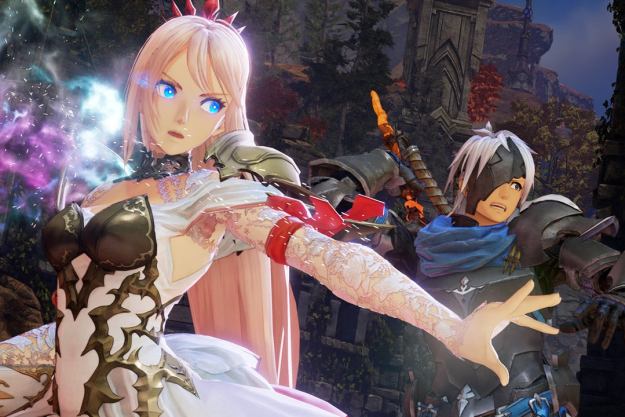Square Enix has announced a remastered collection of six classic Final Fantasy games. Final Fantasy Pixel Remaster will include Final Fantasy, Final Fantasy II, Final Fantasy III, Final Fantasy IV, Final Fantasy V, and Final Fantasy VI. The collection is “coming soon” to Steam and mobile devices — but not consoles, as many fans made known in Square Enix’s comments.
Final Fantasy Pixel Remaster has been rumored for a while, but this is the first time the title has been shown officially. Square Enix has previously released remastered Final Fantasy games for mobile phones and PC — not to mention the completely remade Final Fantasy VII — but the “enhancements” to the older games’ pixel art have not been received well by fans.
The name Pixel Remaster hopefully implies that the series’ art will be going back to its sharp-edged roots, as does the fact that Square is calling the games “the ultimate 2D remasters.”
Square Enix did not provide any additional information beyond a very short trailer showing screenshots from the original games. It’s unclear whether the games will be bundled together in one package, as is suspected, or whether they’ll be released individually. While games like Final Fantasy IV and Final Fantasy VI continue to shine despite their age, other titles in the collection, like Final Fantasy II, have not aged quite as well. It’s unclear whether Square Enix will make any tweaks to the games’ stories or gameplay, but that seems extremely unlikely.
Final Fantasy Pixel Remaster does not yet have a release date, but Square Enix says the collection will be available “soon”.
Editors' Recommendations
- In defense of Final Fantasy 7 Rebirth’s polarizing ending
- Like the best RPGs, Final Fantasy VII Rebirth gets sidequests right
- The best ways to farm Gil in Final Fantasy 7 Rebirth
- PSA: Don’t burn yourself out on Final Fantasy VII Rebirth’s open-world activities
- The best armor in Final Fantasy 7: Rebirth



